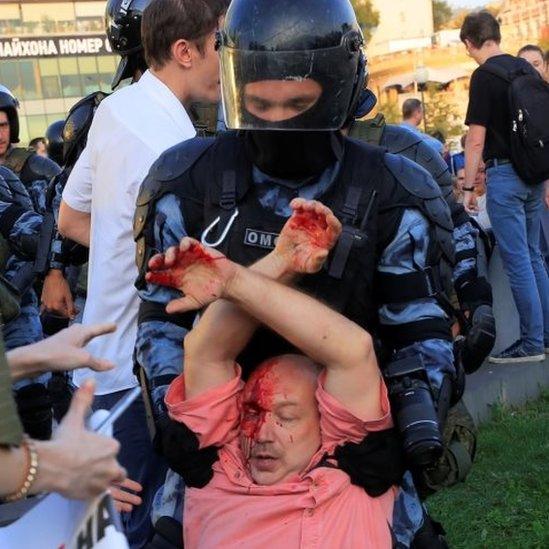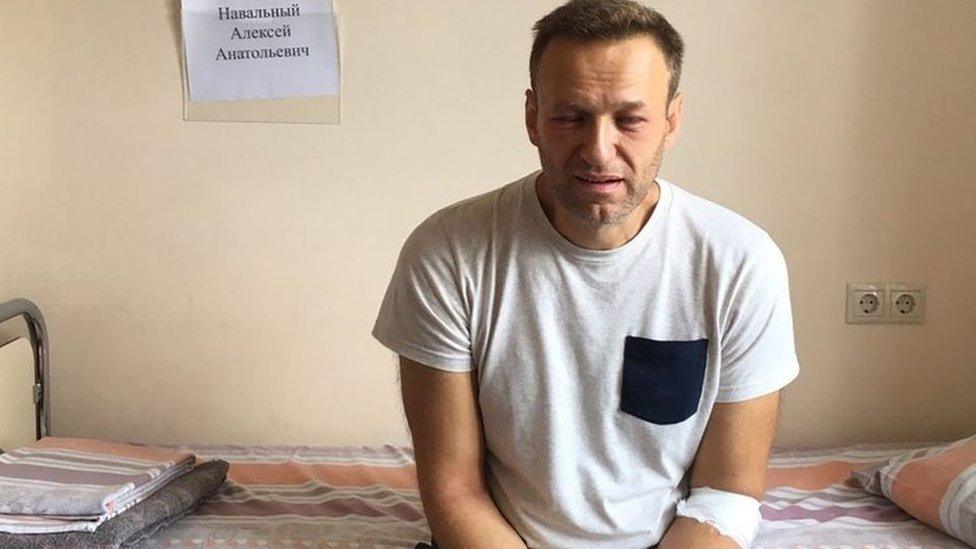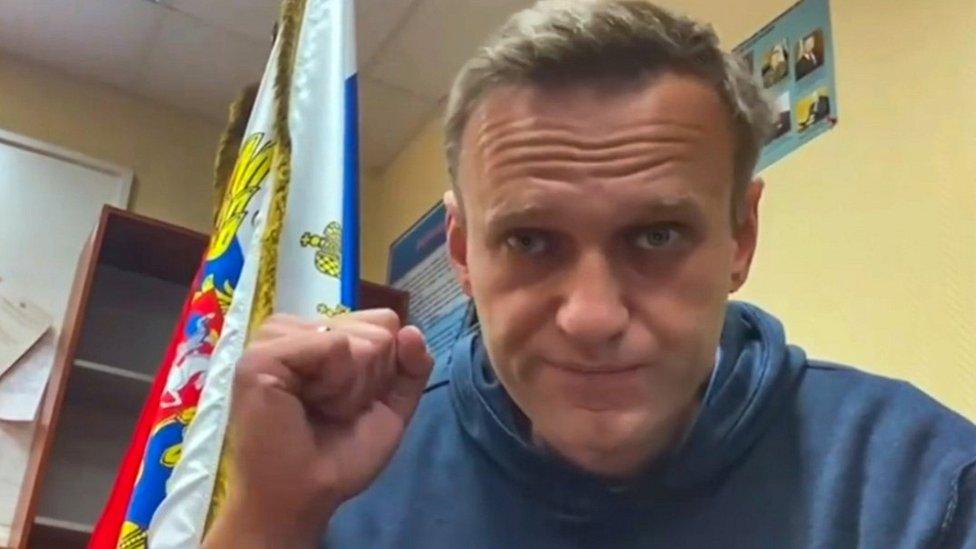Russia launches probe into 'mass unrest' at Moscow protest
- Published
Police marched away detainees at an unauthorised protest last weekend
Russia has launched criminal proceedings into "mass unrest", following last Saturday's protests in Moscow calling for free elections.
State investigators said they would open three criminal cases into violence against police and other officials.
Those found guilty could be jailed for up to 15 years.
More than 1,000 people were detained during the unauthorised protest against the exclusion of opposition candidates from local polls.
Warning: This story contains an image some readers may find disturbing
Demonstrators were dragged away from the city's parliamentary building as security forces used batons against the crowd, in what was one of the biggest crackdowns in Russia in years.
Images from the protest showed several of the demonstrators bleeding, while at least two members of the security forces reportedly received eye injuries from pepper spray.
Some of the candidates banned from standing in the 8 September election had been detained earlier.
Officials disqualified about 30 people, saying they had failed to collect enough valid signatures to stand - a claim denied by the banned candidates.
What did Russian investigators say?
The Investigative Committee said a criminal case had been launched into "mass unrest" in accordance with Article 212 of the Russian Criminal Code.
"The investigation has established that ahead of an unsanctioned rally a group of people repeatedly posted on the internet calls to take part in it, knowing full well that these actions could provoke mass unrest", the committee said in a statement (in Russian)., external

Russian police have been accused of using excessive force

Separately, the committee is investigating violence against police, members of the Russian Guard and other officials in accordance with the Article 318 of the criminal code.
Participants in the rally are also accused of bringing traffic to a standstill in central Moscow.
Moscow Mayor Sergei Sobyanin earlier called Saturday's rally a "security threat", and promised to maintain public order.

Test of nerves for both sides

This is a tough move that seems meant to scare protesters off the streets.
If criminal charges do follow the investigation, then the organisers of Saturday's unauthorised rally could face long prison sentences.
That happened back in 2012 with the "Bolotnaya Square case", after a wave of much bigger protests in Moscow directed against Vladimir Putin.
Now, like then, the charges being examined are extremely serious. They involve qualifying the protest as "mass unrest": a riot.
It was, though, a peaceful political rally until the crowd refused orders to disperse and riot police swooped with rubber batons.
Some officers were also injured in the clashes.
And yet there are already calls to rally again over the original cause for all this: the decision to bar opposition candidates from running for the city council.
A local election that usually passes barely noticed has become a flashpoint for far broader concerns, and a test of nerves for both sides.

What's the background to this?
Anger has been building among opposition supporters at the way the city is run and towards the ruling pro-Kremlin United Russia party, which has a majority in the capital's parliament.

Alexei Navalny was taken to hospital with a swollen face, eye problems and rashes on his body
Opposition leader Alexei Navalny, a fierce critic of President Vladimir Putin, was jailed for 30 days last Wednesday after calling for Saturday's rally.
Mr Navalny later said he may have been poisoned, in a first statement since being taken ill in prison.
Mr Putin was on a trip to the Baltic Sea on Saturday for a dive in a submersible.
"There are a lot of problems on Earth, so to diminish their amount one has to go up and deep down," he remarked.
Local elections usually attract little attention in Russia.
The Moscow authority does not control the city's budget or choose key official appointments, and previous votes have passed without major protests or press interest.
But this year some Muscovites are infuriated at what they see as brazen attempts to disqualify independent politicians from running.
After Saturday's crackdown, election candidate and opposition leader Dmitry Gudkov said the Moscow parliament had "died under Putin".
Mr Gudkov was jailed on Tuesday for 30 days for his role in a public rally earlier this month.
- Published16 February 2024
